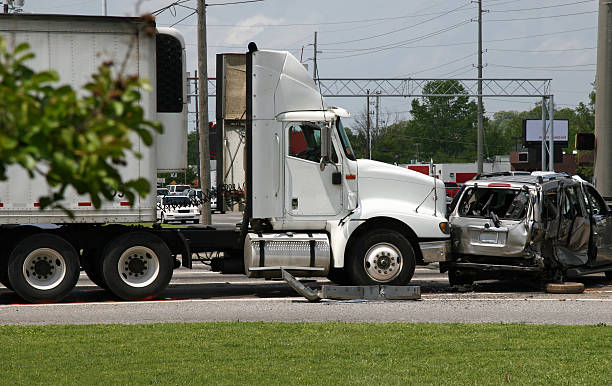Truck accidents can be devastating, often resulting in serious injuries, extensive property damage, and emotional distress. Unlike typical car accidents, truck crashes can involve multiple parties, including drivers, trucking companies, and insurance providers, making these cases particularly complex. It’s crucial for victims to understand the unique challenges associated with truck accidents and the importance of having the right legal support from an experienced attorney who can navigate the complexities of these cases.
Common Causes of Truck Accidents
Understanding the causes of truck accidents is essential for both prevention and legal recourse. Here are some of the most common factors that contribute to these serious incidents:
1. Driver Fatigue:
Truck drivers frequently work extended hours, often exceeding the legal limits. Long hours on the road can lead to fatigue, which significantly impairs a driver’s ability to operate their vehicle safely. Fatigued drivers may suffer from impaired judgment and reduced reaction times, greatly heightening the risk of accidents. Research indicates that drowsy driving can be as hazardous as driving while intoxicated. According to the National Highway Traffic Safety Administration (NHTSA), thousands of accidents each year are linked to drowsy driving, underscoring the need for strict enforcement of hours-of-service regulations.
2. Overloading:
Exceeding weight limits can adversely affect a truck’s handling and braking capabilities. Overloaded trucks require longer stopping distances and are more prone to tipping over, which can lead to serious accidents on the road. Additionally, overloading can cause undue stress on a truck’s tires and brakes, increasing the likelihood of mechanical failures. It is essential for trucking companies to adhere to weight regulations to ensure the safety of their drivers and others on the road.
3. Distracted Driving:
Just like any other drivers, truck drivers can become distracted by phones, GPS devices, or other in-cabin distractions. This distraction can lead to a loss of focus on the road, increasing the likelihood of a crash. According to the Federal Motor Carrier Safety Administration (FMCSA), distractions are a leading cause of accidents across all vehicle types. Truck drivers must remain vigilant and prioritize safe driving practices to avoid unnecessary accidents.
4. Improper Maintenance:
Trucks require regular maintenance to ensure they are in safe working condition. Neglecting maintenance can result in mechanical failures, such as brake failures or tire blowouts, which can contribute to accidents. Regular inspections and maintenance are not only a legal requirement but also a crucial aspect of ensuring the safety of both the driver and the public. Companies must ensure their fleets are regularly serviced to minimize risks.
5. Poor Weather Conditions:
Adverse weather, such as rain, snow, or fog, can severely impact a truck’s traction and visibility. When driving conditions are poor, careful and cautious driving is essential to prevent accidents. Truck drivers must be trained to handle their vehicles under various weather conditions, and they should adjust their speed and driving style accordingly. Failing to adapt to weather changes can lead to catastrophic accidents.
Who is Responsible for a Truck Crash?
Determining liability in a truck accident can be complex due to the various parties involved. Several individuals or entities may share responsibility, including:
1. The Truck Driver:
If the driver was negligent—such as driving under the influence, violating traffic laws, or being fatigued—they may be held liable for the accident. This liability can extend to any actions taken while behind the wheel that led to the crash.
2. The Trucking Company:
Employers can be held responsible for their employees’ actions. If a trucking company failed to conduct proper background checks, neglected training, or pressured drivers to meet unrealistic deadlines, they might share liability for the accident. Consulting an expert attorney can help you understand your rights and determine the best course of action for your cases.
3. Vehicle Manufacturers:
If a truck’s parts malfunction due to defects, the manufacturer could be held liable for the resulting accident. This includes issues with brakes, tires, and other critical components that may lead to a loss of control.
4. Cargo Loaders:
If cargo is improperly loaded or secured, causing the truck to become unbalanced or difficult to control, the loaders or shippers might bear responsibility for any resulting accidents. Proper training and adherence to loading protocols are essential to ensure safety.
5. Maintenance Providers:
Companies or individuals responsible for maintaining the truck can be liable if they failed to address critical repairs or conduct regular inspections, leading to an accident. This includes the need for thorough inspections and repairs to ensure that the truck is safe for operation.
Conclusion
Truck accidents can result in severe consequences for victims and their families. Understanding the common causes and determining liability can be complex but is essential for securing compensation. An experienced attorney can provide the necessary guidance and support, helping victims navigate the legal landscape and advocate for their rights. If you or a loved one has been involved in a truck accident, seeking legal advice promptly can make a significant difference in the outcome of your case.
